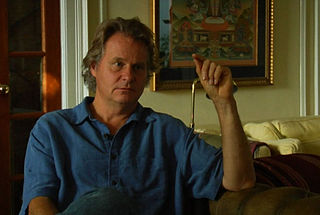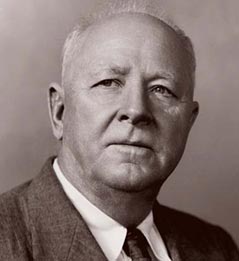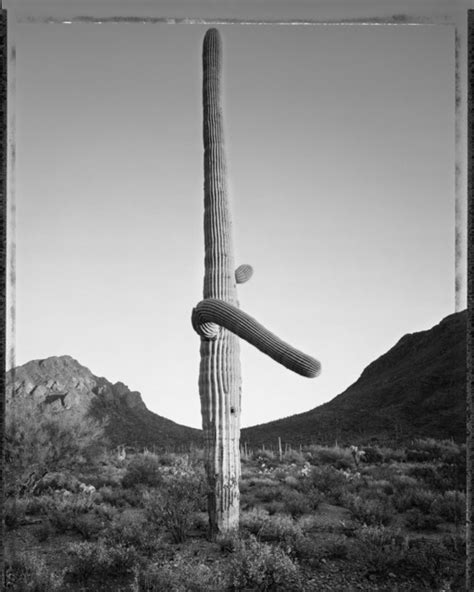A Quote by Wade Davis
We accept it as normal that people who have never been on the land, who have no history or connection to the country, may legally secure the right to come in and, by the very nature of their enterprises, leave in their wake a cultural and physical landscape utterly transformed and desecrated. What's more, in granting such mining concessions, often initially for trivial sums to speculators from distant cities, companies cobbled together with less history than my dog, the government places no cultural or market value on the land itself.
Quote Topics
Accept
Been
Cities
Cobbled
Come
Companies
Concessions
Connection
Country
Cultural
Distant
Dog
Enterprises
Government
History
Initially
Itself
Land
Landscape
Leave
Legally
Less
Market
May
Mining
More
My Dog
Nature
Never
Normal
Often
People
Physical
Places
Right
Secure
Speculators
Than
Together
Transformed
Trivial
Utterly
Value
Very
Wake
Related Quotes
I've always believed that this blessed land was set apart in a special way, that some divine plan placed this great continent here between the oceans to be found by people from every corner of the Earth who had a special love for freedom and the courage to uproot themselves, leave homeland and friends, to come to a strange land. And coming here they created something new in all the history of mankind-a land where man is not beholden to government, government is beholden to man.
Country' and 'city' are very powerful words, and this is not surprising when we remember how much they seem to stand for in the experience of human communities. In English, 'country' is both a nation and a part of a 'land'; 'the country' can be the whole society or its rural area. In the long history of human settlements, this connection between the land from which directly or indirectly we all get our living and the achievements of human society has been deeply known.
A Land Valuation Tax is a levy on the value of the land unimproved by buildings or other enhancement. The method is already used by insurance companies each year when they calculate your home insurance premium - they separate the cost of a total rebuild of the property from the value of the land itself.
History is largely a record of human struggle to wrest the land from nature, because man relies for sustenance on the products of the soil. So direct, is the relationship between soil erosion, the productivity of the land, and the prosperity of people, that the history of mankind, to a considerable degree at least, may be interpreted in terms of the soil and what has happened to it as the result of human use.
So much of what we know, and what we think we know, about the land has first passed through someone's lens. The interesting thing is to make use of this history, not merely to be absorbed into it. For me, landscape photographs begin as the artifacts of personal moments. They get interesting when they become cultural commentary.
Another thing is, people lose perspective. It is a cultural trait in America to think in terms of very short time periods. My advice is: learn history. Take responsibility for history. Recognise that sometimes things take a long time to change. If you look at your history in this country, you find that for most rights, people had to struggle. People in this era forget that and quite often think they are entitled, and are weary of struggling over any period of time
The funny thing is that some reviews are published in magazines and websites that are seen by millions of people, and other reviews are in very small publications or less popular websites, and you just have to be lucky to have the good reviews land in places where more people see them, and bad reviews land in places where they will be less seen.
But in fact as knowledge expands globally it is being lost locally. This is the paramount truth of the modern history of rural places everywhere in the world. And it is the gravest problem of land use: Modern humans typically are using places whose nature they have never known and whose history they have forgotten; thus ignorant, they almost necessarily abuse what they use.
The myth of the dead Indian goes back to the Protestant settlement of the U.S. The Pilgrims wanted to start a new life in America. They wanted to believe that in some sense they had come to a new Eden and that they could leave history behind in Europe. So they convinced themselves that this land had no history, that this was "virgin" land. This made the Indians' presence inconvenient.
Where is the "unexplored land" but in our own untried enterprises? To an adventurous spirit any place--London, New York, Worcester, or his own yard--is "unexplored land," to seek which Frémont and Kane travel so far. To a sluggish and defeated spirit even the Great Basin and the Polaris are trivial places.
History is not everything, but it is a starting point. History is a clock that people use to tell there political and cultural time of day. It is also a compass that people use to find themselves on the map of human geography. History tells a people where they have been and what they have been, where they are and what they are. Most important, history tells a people where they still must go, what they still must be. The relationship of history to the people is the same as the relationship of a mother to her child.





































